Philosophy Semester One
1/54
There's no tags or description
Looks like no tags are added yet.
Name | Mastery | Learn | Test | Matching | Spaced |
|---|
No study sessions yet.
55 Terms
Metaphysics
Discusses the origin or the nature of things. The nature of reality, the universe, existence, mind vs. matter, causality (cause & effect), and possibility.
Epistemology
Seeks to understand the nature of knowledge. Theory of knowledge. Rationalism and Empiricism.
Value Theory
Good vs. Evil, what we should do. Anything that's a value, judgment.
Logic
Reasoning that is fallacy proof
Deductive reasoning
Goes from broad to the specific.
Fallacy
Mistake in logic, logically incorrect.
Deontology
Judges something as ethical or not based on whether it complies with a rule.
Utilitarianism
Judges whether something is ethical based on the outcome.
Empiricism
We gain knowledge through experience, observation, and the senses. Aristotle
Rationalism
We gain knowledge through reason. Plato and Socrates
Natural philosophers
Tried to figure out the world around them. Concerned with the original substance and transformation.
Thales
Believed the original substance was water
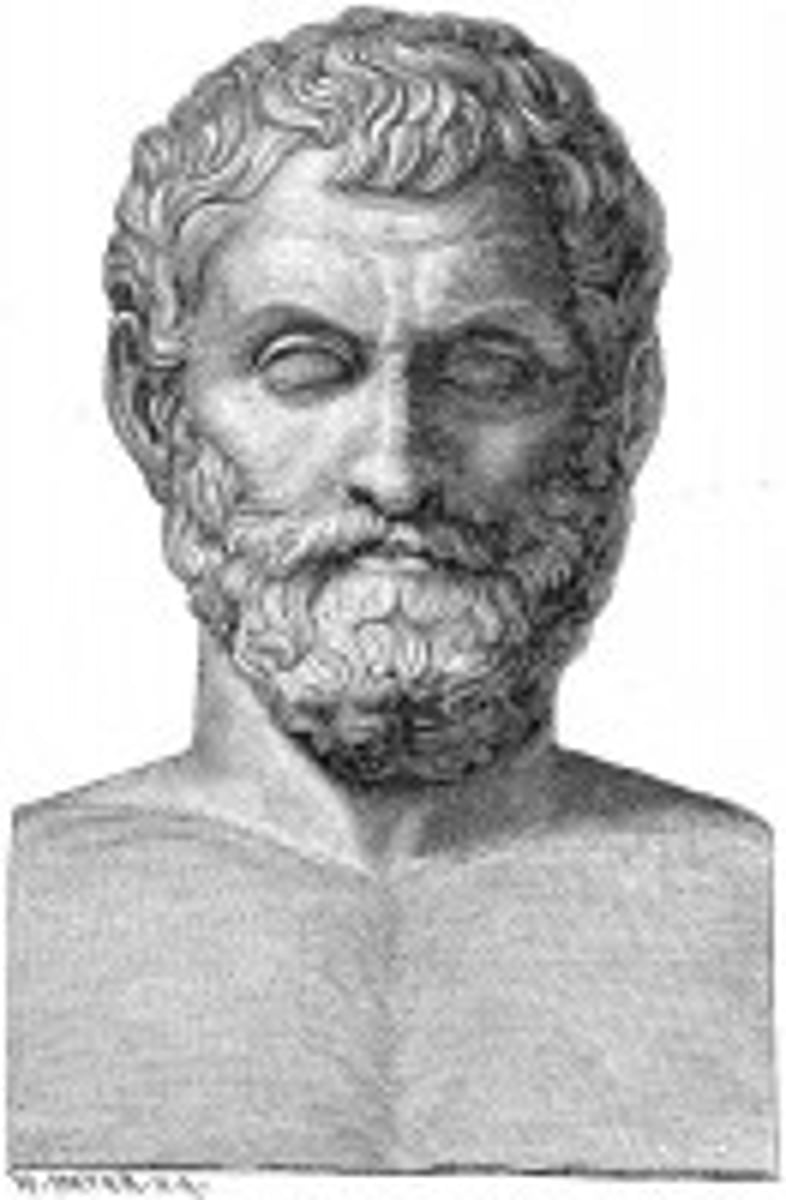
Anaximenes
Believed the original substance was air. With pressure, air can transform.
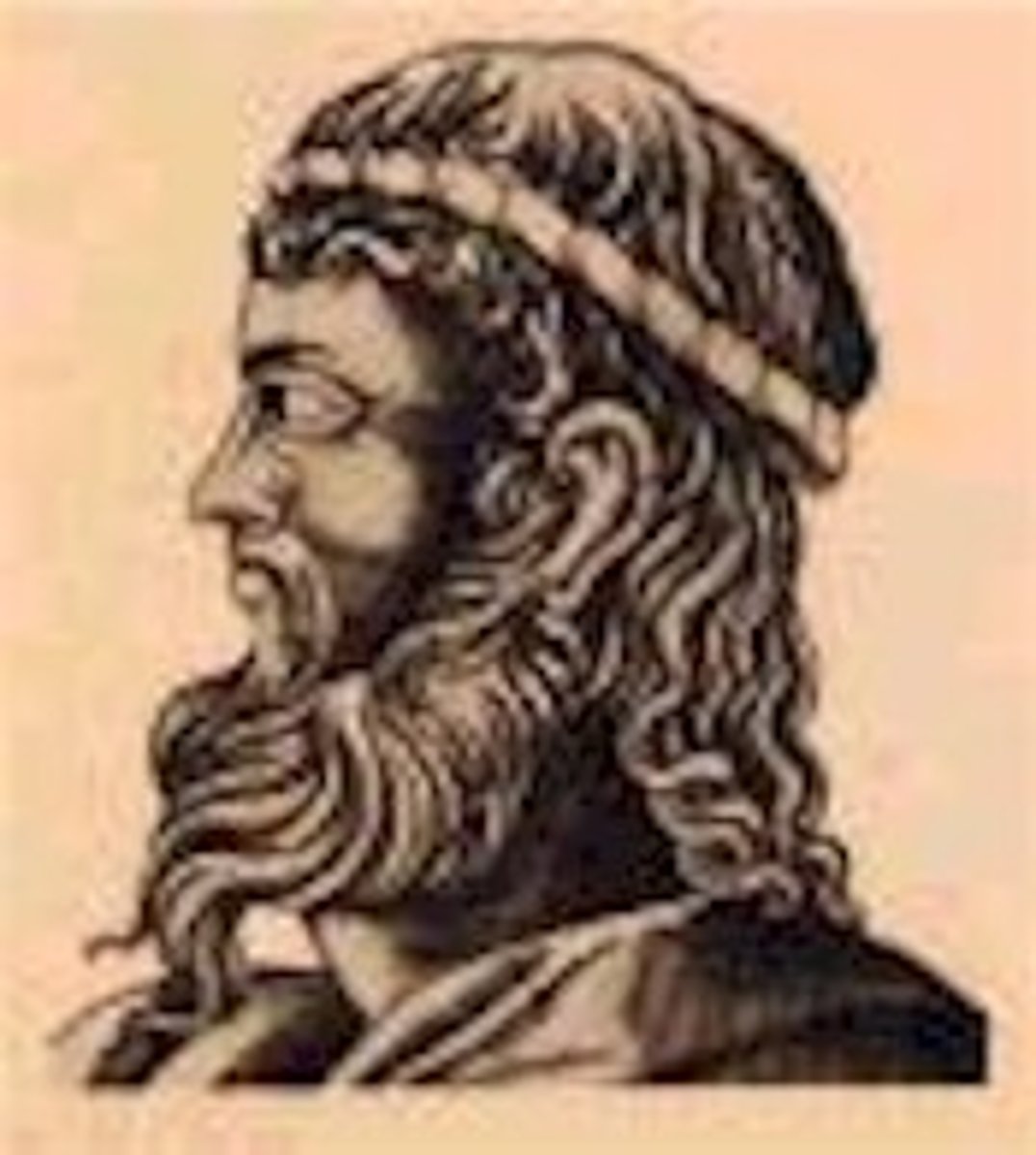
Empedocles
Four original substances: air, fire, water, and earth. They come together to form new things but they can also be separated; therefore, they do not transform.
Trust your senses (empiricist).
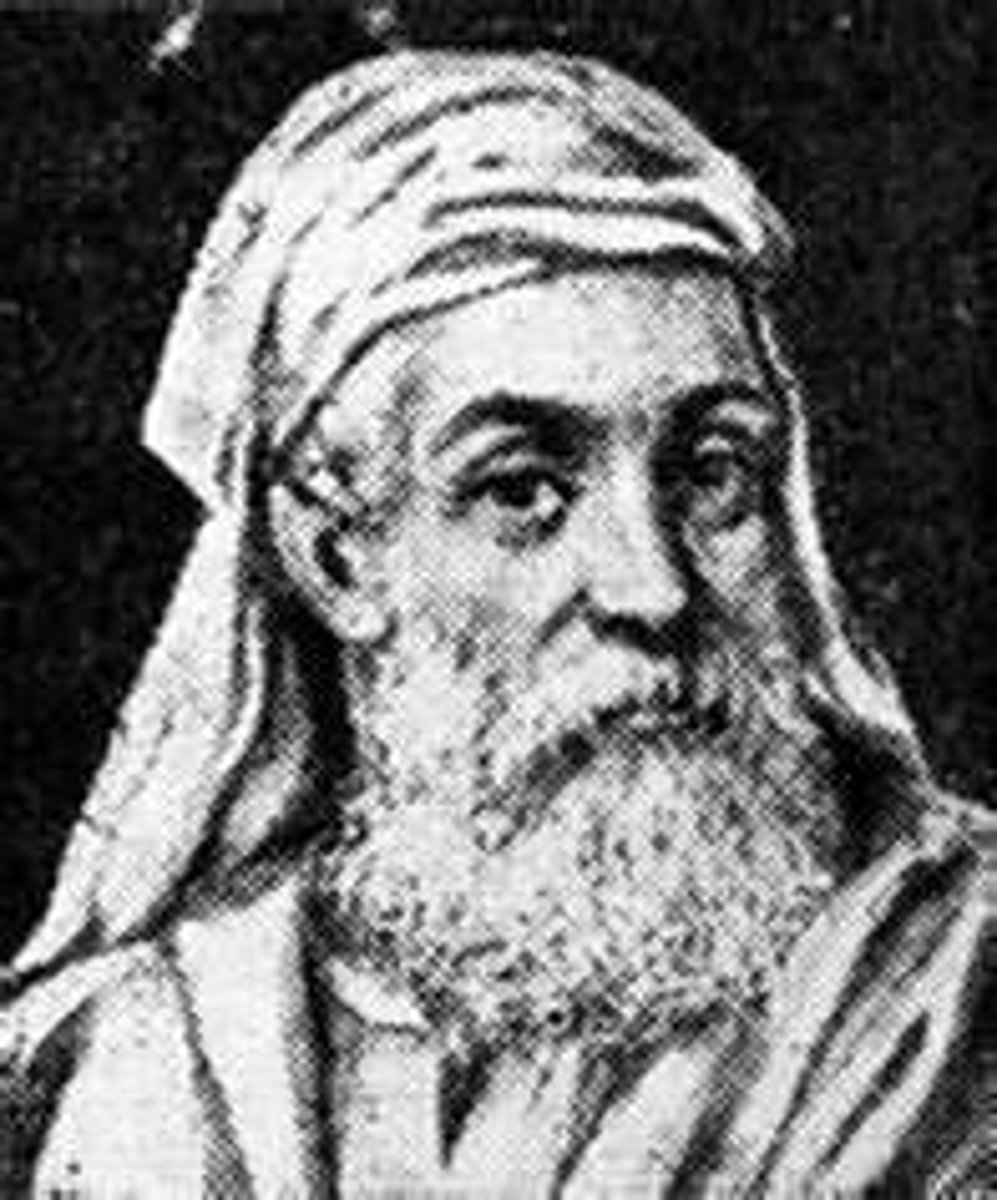
Parmenides
Everything that exists has always existed, things cannot originate from nothing.
Observed transformation take place, but did not trust his senses. Senses can lie, they create illusions and hide the truth.
Rationalist: claimed that reason is the only source of truth and knowledge.
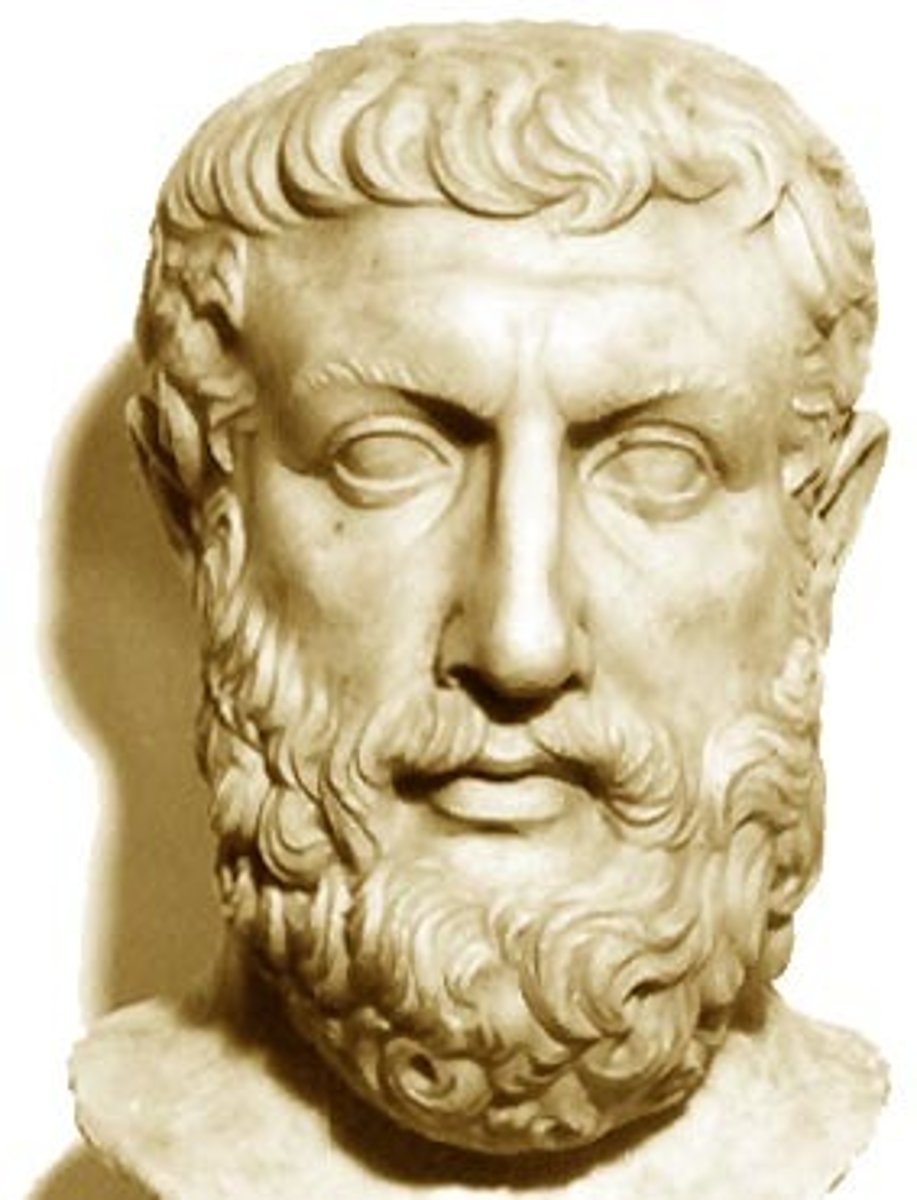
Heraclitus
Nature is based on transformation (flow of nature). Opposites are fundamental in nature, without them the world would end. Without death you cannot experience life, without war you cannot appreciate peace, etc.
Trust your senses. God is present in the transformation of nature and nature's opposites (empiricist).
"We 'cannot step twice into the same river.' When I step into the river for the second time, neither I nor the river are the same".
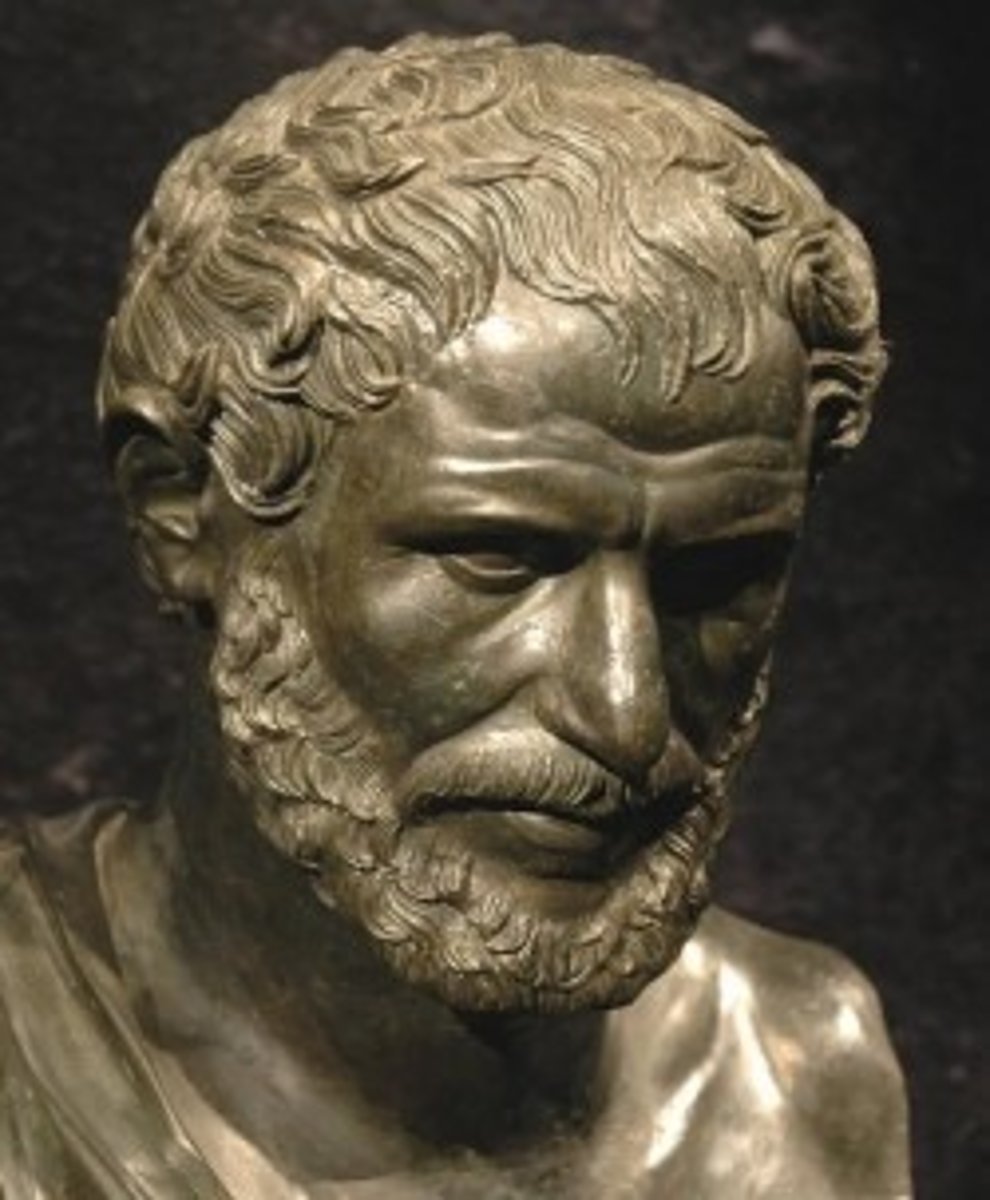
Democritus
The original substance was the atom. Atoms are indivisible, and eternal, and they do not change. They come together to form all things in nature. This is not transformation. Atoms move mechanically according to the law of necessity.
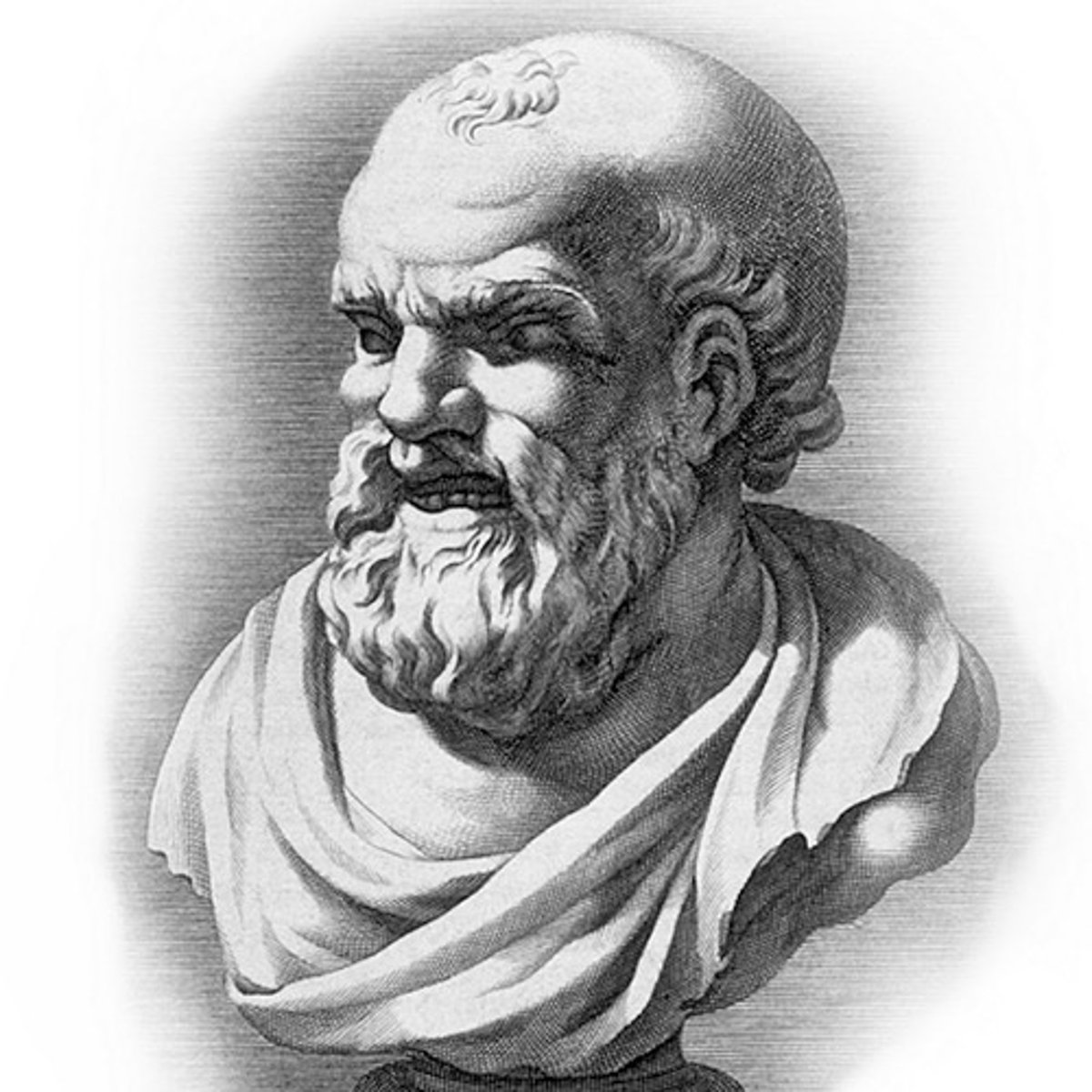
Original Substance
What the natural philosophers thought things were composed of and where everything came from. Philosophers had different beliefs about this.
Transformation
The idea that things come together and change their form, thus they cannot be separated.
Socrates Wisdom
Thought you were wise if you admitted that you had limited knowledge and still had a lot to learn. Thought you were wise in function of the admission of your ignorance.
Socrates' Dialectical Method
Breaking down an idea based on whether or not something is logical and makes sense. To reveal incoherences and determine what cannot be true, moving closer to the truth.
Socratic Irony
Asking questions while pretending to be ignorant exposes individuals who pretend to be experts on a subject. A tactic to expose the weaknesses in other people's thought processes.
Socrates' Criticism of Democracy
Thought voting was a skill and most people were not educated enough to practice that skill. People should not be excluded forever, they should get an education. An uneducated population is subject to manipulation, demodog.
Socrates' Trial and Death
He was killed because he corrupted the youth by encouraging them to question, impiety, and embarrassing people.
Plato's Legacy
He started the first school, the Academy in Athens
Plato's World of Forms
Subconscious mental space has the perfect version of all things. Eternal, invariable. We have to use our reason to get to the world of forms.
Plato's World of Senses
Physical world. the knowledge we have is imperfect. Everything flows and changes.
- Idealism: Everything we see is a reflection, or projection, of the world of forms.
Plato's The Republic
A utopian society where rulers were philosopher kings. the triad apartheid soul would dictate what group you are in:
- Philosopher king
- Laborer
- Warrior
Plato's View on Women
Believed women should be educated because the soul is genderless and it is a waste of resources not to. Said that the uterus moved around the body and that women were inferior. Inconsistent. Sometimes called the first feminist.
Plato's Allegory of the Cave
Three prisioners locked up in a cave, one escapes into the real world and sees things beautifully. He then goes back into the cave and tries to tell the prisoners about the outside world. The world inside the cave represents the world of senses, the outside represents the world of forms. The prisoner who escapes represents those who are educated (philosophers), the other prisoners are sheep.
Aristotle's Legacy
First European biologist, created the lyceum (he walked and talked).
Aristotle's Golden Mean
Balance and life.
There must be a balance of virtue. Too much or too little is vice. Virtue lies between two extremes.
Aristotle on Government
Suggested that three systems could work, but they all had flaws:
- Monarchy: may degenerate into tyranny.
- Aristocracy: may degenerate into oligarchy.
- Polity (democracy): may degenerate into a mob rule.
Aristotle on Human Nature
Without a society, a human is not a human. Humans are political animals.
Aristotle's Classification
Is it alive?
If it is not, then it has no importance.
Does it move?
If it is alive but doesn't move it is a plant.
Does it think?
If it doesn't think it's an animal, if it does think it's a human.
Hierarchy: plants, animals, humans.
Humans are at the top of the natural chain because we live "the whole life of nature," and we have reason.
Aristotle's Views on Women
Women must stay in the house, their only function is reproduction. They're too cold and too wet to produce semen. A period is deformed semen. Women are deformed males.
Cynicism
Rejection of material things. You will be happy in function of your detachment from material things.
Hellenism
What does it mean to live a good life? What does it mean to be happy?
Stoicism
Governed by natural law, things will happen the way they are meant to happen; we will be happy if we just accept that. Control of emotions.
Epicureanism
Seek pleasure (friendship, achieving goals) and avoid pain. Prioritize long-term pleasure over short-term pleasure. Balance, serenity, and self-control. Death is not of our concern.
Neoplatonism
God (the One) is divine light that shines upon the world. There is light (Existence) and there is darkness (non-existence).
The human soul receives God's light. Being close to God is how we find the truth.
Medieval Philosophy
Focus on religion.
St. Augustine on Free Will
Free will exists, but God has seen what we will do and has decided our fate based on that.
The Problem of Evil
If God is all good and he created everything, then why do we have evil?
St. Augustine's responses to the Problem of Evil
1. Evil is the absence of God.
2. Evil might need to happen for something else to occur, "evil" might be part of the greater good or God's plan.
3. Evis is human disobedience to God.
St. Thomas Aquinas
Faith and reason lead to the same conclusions. There's no conflict between philosophy and Christianity. They are two paths to God.
Faith
I believe IN
Reason
I believe THAT
Criticism of religion
There are not enough reasons to believe in God. However, individuals put faith in many things in everyday life, such as marriage or getting into a car.
Renaissance
Cultural, political, artistic, and economic rebirth. New scientific methods and discoveries. Return to the Greeks and a return to the human aspect of things. Rebirth of humanism.
Machiavelli: Feared vs. Loved
It is better to be feared than to be loved as love fades away.
Machiavelli: The ends justify the means
Utilitarianism view.
Machiavelli's Virtuous Leader
Is cautious or bold depending on the occasion, knows what to do and when to do it, is cruel when necessary, is clever and strong (fox and the lion), accepts the role of fortune, and plans accordingly (is not taken off guard).
Machiavelli Application to Modern Leaders
Stalin, Putin, Trump, Hitler, Buquele.
Machiavelli Interpretations
There are different interpretations of his work.
- Because we wrote the opposite in another work, we are not certain of his beliefs. He suggested that republics were the best option, opposite of the Prince.
- He wrote The Prince in Italian (the language of the common people), not Latin (the language of the elite), so it is speculated that it might be satire.